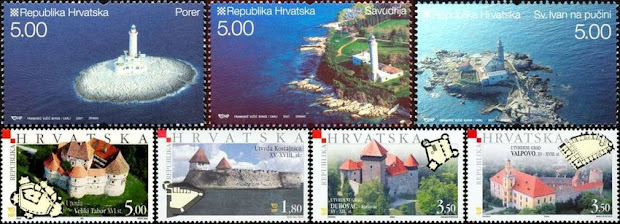Croats cast their vote in local elections yesterday. A summary of the results, ordered by the size of towns.
In Zagreb incumbent mayor and swanky social democrat Milan Bandić goes to the next round, in which he will have to fight independent candidate Josip Kregar, dean of Zagreb's Law faculty. Bandić received 48 percent of the votes, a bit short for a win in the first round.
Entrepeneur Željko Kerum got 40 percent of the votes in Split. His main contender Ranko Ostojić (social democrat) follows with 35 percent. Both men (Croatian politics is to a large degree, unfortunately, men's business) will have a face-off in the second round.
 No second round in Rijeka, Croatia's largest port. Social democrat Vojko Obersnel won a safe majority of the votes.
No second round in Rijeka, Croatia's largest port. Social democrat Vojko Obersnel won a safe majority of the votes.
Osijek will have a second round in two weeks. The contenders are incumbent right-wing mayor Anto Đapić and Krešimir Bubalo, member of Branimir Glavaš HDSSB party. Glavaš was sentenced to ten years last week after he was found guilty of war crimes against Serbian civilians in Osijek.
All other towns have much less than 100.000 inhabitants. Only in these smaller towns some HDZ mayors managed to secure their seats (HDZ is the ruling party in national politics). HDZ president Jadranka Kosor said that her party won the vast majority of the counties, for what it's worth. Croatia has 21 counties (županije), an administrative unit that does not hold a lot of power.
High-ranking HDZ-member Andrija Hebrang, former minister of Defense and Health, was not surprised that his party did not win in the bigger towns. "In the centre of the city live either the voters or descendants of people who were privileged during communism." The electorate Hebrang likes better gathered last week in Bleiburg for a commemoration. In 1945 Tito's partisans killed there a great number of fascists, ustaše, četniks and also some innocent people. Hebrang gave a speech in Bleiburg, a bunch of clergymen said that if "Bleiburg is no genocide, then what is genocide?", and several people were arrested for wearing fascist symbols.

In Zagreb incumbent mayor and swanky social democrat Milan Bandić goes to the next round, in which he will have to fight independent candidate Josip Kregar, dean of Zagreb's Law faculty. Bandić received 48 percent of the votes, a bit short for a win in the first round.
Entrepeneur Željko Kerum got 40 percent of the votes in Split. His main contender Ranko Ostojić (social democrat) follows with 35 percent. Both men (Croatian politics is to a large degree, unfortunately, men's business) will have a face-off in the second round.
 No second round in Rijeka, Croatia's largest port. Social democrat Vojko Obersnel won a safe majority of the votes.
No second round in Rijeka, Croatia's largest port. Social democrat Vojko Obersnel won a safe majority of the votes.Osijek will have a second round in two weeks. The contenders are incumbent right-wing mayor Anto Đapić and Krešimir Bubalo, member of Branimir Glavaš HDSSB party. Glavaš was sentenced to ten years last week after he was found guilty of war crimes against Serbian civilians in Osijek.
All other towns have much less than 100.000 inhabitants. Only in these smaller towns some HDZ mayors managed to secure their seats (HDZ is the ruling party in national politics). HDZ president Jadranka Kosor said that her party won the vast majority of the counties, for what it's worth. Croatia has 21 counties (županije), an administrative unit that does not hold a lot of power.
High-ranking HDZ-member Andrija Hebrang, former minister of Defense and Health, was not surprised that his party did not win in the bigger towns. "In the centre of the city live either the voters or descendants of people who were privileged during communism." The electorate Hebrang likes better gathered last week in Bleiburg for a commemoration. In 1945 Tito's partisans killed there a great number of fascists, ustaše, četniks and also some innocent people. Hebrang gave a speech in Bleiburg, a bunch of clergymen said that if "Bleiburg is no genocide, then what is genocide?", and several people were arrested for wearing fascist symbols.





0 reacties:
Post a Comment